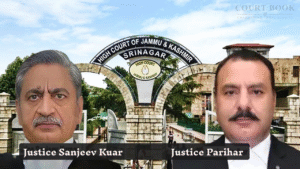The Orissa High Court has upheld the decision of the Election Officer to reject the nomination of Mona Keshri for membership in the Panposh Regulated Market Committee (RMC). The Court ruled that the disqualification provisions under the Odisha Agricultural Produce Markets Rules, 1958, applied squarely to her case since her husband was employed with the same market committee.
Background of the Dispute
Keshri, an elected ward member of Biramitrapur Municipality, had filed her nomination for the Panposh RMC election in October 2024. However, her papers were rejected by the Election Officer on the ground that her husband, Bijay Bhengara, was engaged as a Market Guard under the Rehabilitation Assistance Scheme of the committee. The election results were declared in November 2024 without her participation.
Read Also:- Orissa High Court Orders Appointment of Visually Impaired Teacher After Decade-Long Legal Battle
Challenging the rejection, Keshri argued that her husband was only a contractual, daily-wage worker whose appointment had not yet been formally approved. She further contended that she had her own independent income through a self-help group and a grocery shop and therefore did not depend on her husband’s earnings.
Arguments Before the Court
Her counsel submitted that Rule 3(7) of the OAPM Rules, which bars individuals having “direct or indirect interest in any contract or employment under the Market Committee,” had been misapplied. They maintained that the provision was meant for regular employees and did not cover temporary or contractual engagements.
Read Also:- Orissa High Court Confirms Life Terms for Six in Kendrapara Double Murder Over Rs. 1,000 Loan Dispute
On the other hand, the State defended the rejection, stressing that the rule was clear and unambiguous. “Since her husband works for the Market Committee, she indirectly benefits from such employment and is therefore disqualified,” argued the State counsel.
Court’s Analysis and Ruling
Justice Sashikanta Mishra noted that the petitioner’s husband had indeed been appointed as a Market Guard in 2018 on contractual terms with consolidated remuneration. The Court referred to the plain meaning of the term “employment,” holding that it covered all forms of engagement—regular, temporary, contractual, or ad hoc.
Quoting the Supreme Court’s observation in UPSC v. Dr. Jamuna Kurup (2008), the judge remarked: “In the absence of any restrictive definition, the word ‘employee’ would include both permanent or contractual.” The Court also cited a similar Orissa High Court ruling in Malati Sahu v. State of Odisha, which reinforced this interpretation.
Read Also:- High Court of Orissa Sets Aside Non-Bailable Warrant, Grants Conditional Relief to Petitioner
Addressing the petitioner’s claim of not being heard, the Court applied the “Doctrine of Empty Formality,” holding that even if a hearing had been granted, the outcome would not have changed since her husband’s employment under the RMC was admitted.
Finding no merit in the challenge, the High Court dismissed the writ petition
Case Title: Mona Keshri v. Election Officer, Panposh Regulated Market Committee-cum-Sub-Collector, Panposh and Another
Case Number: W.P.(C) No. 30558 of 2024















